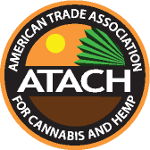In response to the 2018 Farm Bill and the increasing popularity of synthetic cannabinoids like Delta-8 and Delta-10 THC, Maryland has adopted a relatively unregulated stance on hemp-derived intoxicants. While the state permits the sale of these products, it provides limited state-specific guidelines, resulting in minimal oversight. This permissive approach places Maryland’s synthetic THC products in a legal gray area, with limited consumer protections and regulatory standards.
1. Regulation of Synthetic THC Products
Maryland does not impose explicit regulations controlling the production, sale, or distribution of synthetic THC products, including Delta-8 and Delta-10 THC. These products are allowed under Maryland’s general hemp laws but are not subject to the strict controls seen in the state’s cannabis program.
2. THC Potency Limits
Maryland has not established specific potency limits for synthetic cannabinoids, including Delta-8 and Delta-10 THC. This absence means that THC potency in available products may vary significantly, as there are no statewide controls on concentration levels for hemp-derived intoxicants.
3. Public Health Measures
Maryland lacks targeted public health regulations specific to synthetic THC products. The state does not enforce age restrictions, child-resistant packaging, or mandatory labeling for hemp-derived intoxicants. This lack of public health measures could pose risks, particularly for younger consumers, as products may be marketed and sold without stringent consumer protection guidelines.
4. Licensing Requirements and Fees
Maryland does not require specific licenses or fees for businesses involved in the production, distribution, or sale of synthetic THC products. Producers and sellers operate within Maryland’s hemp industry without needing specialized authorization, relying only on general business licensure to conduct operations.
5. Testing Standards
There are no mandatory testing standards for synthetic THC products in Maryland. Without required testing, products on the market may lack consistent quality control measures, with unregulated potency and potential contaminants.
6. Advertising and Marketing Restrictions
Maryland does not impose specific advertising or marketing restrictions on synthetic THC products, allowing businesses to promote these items with minimal oversight. There are no prohibitions on marketing practices that might appeal to underage consumers, resulting in highly variable marketing standards based on individual business practices.
7. Retail Location and Zoning Restrictions
Maryland does not have zoning restrictions specific to the sale of hemp-derived intoxicants, unlike the location controls applied to medical cannabis dispensaries. Retailers selling synthetic THC products operate without restrictions on proximity to schools or other sensitive locations.
8. Age Restrictions for Purchase and Use
Maryland does not enforce age restrictions on the purchase or use of synthetic THC products, which allows unrestricted access to these items regardless of consumer age. This regulatory gap contrasts with the age restrictions applied to regulated cannabis products in the state.
9. Impact on Medical and Adult-Use Cannabis Programs
Maryland’s unregulated approach to hemp intoxicants exists independently from its medical cannabis program, creating a distinct market for synthetic THC. This separation allows intoxicating hemp products to be sold outside of Maryland’s controlled cannabis program, impacting the licensed cannabis market, which must meet stricter regulatory and safety standards.
